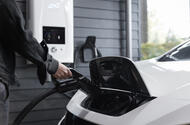Government is not cleaning up its own fleet while it is penalising ordinary drivers for not going electric
Almost four in five cars used by the UK government remain petrol, diesel or hybrid-powered, despite it having previously pledged to “lead by example†and transition to a completely electric fleet by 2027.
Data uncovered by Autocar sibling title What Car? via Freedom of Information requests reveals that just 22% of the cars used by the government are EVs.Â
Meanwhile, 35% are diesels, another 35% are plug-in hybrids, 6% are petrols and the remaining 2% are regular hybrids.
The rate of electrification differs between government departments. The Driver and Vehicle Licensing Agency (DVLA) said that 88% of its cars were EVs, whereas the Ministry of Justice said they accounted for just 16% of its car fleet.
Having lagged in switching to EVs itself, the government took punitive action against hybrid and PHEV drivers in the recent Spring Statement.
Vehicle excise duty rates for such cars were increased from £10-£30 to £110-£130, depending on their CO2 emissions – an increase of up to 11 times.
“It is completely wrong that the government is not cleaning up its own fleet at the same time that it is penalising ordinary drivers for not going electric by slapping higher taxes on low-emission alternative vehicles,†said What Car? editor Steve Huntingford.
Notably, the government that originally laid the plan to go completely electric – including its vans – by 2027 was a Conservative administration led by Boris Johnson.
The decision to “lead the wayâ€Â and demonstrate that EVs were a viable option for fleets was set when Grant Shapps was the transport secretary – three governments, four transport secretaries and four years ago.Â
"We will lead by example with 25% of the government car fleet ultra low emission by December 2022 and 100% of the government car and van fleet zero emission by 2027," read the Department for Transport paper setting out the policy.
It's unclear whether the current Labour government (and current transport secretary Heidi Alexander) intend to break from the Conservatives’ strategy.
However, it has already reversed its predecessors’ policies in key areas, such as delaying the ban on sales of new hybrid cars by five years to 2035.

